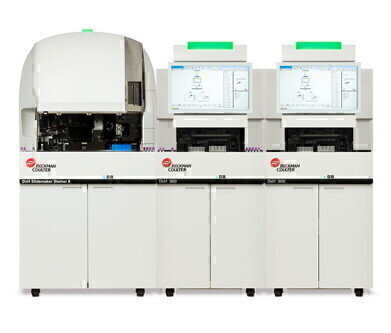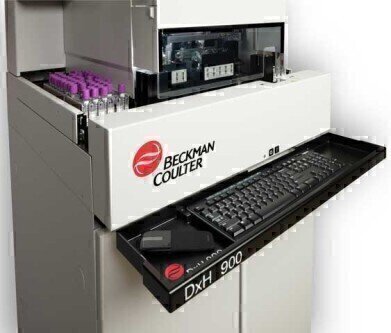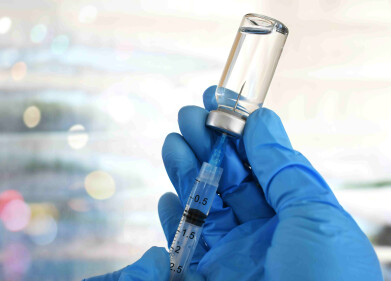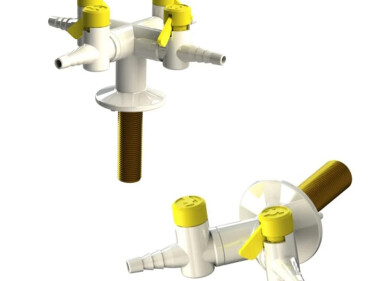-
 Beckman Coulter’s DxH 900 Haematology Analyser
Beckman Coulter’s DxH 900 Haematology Analyser -

-

Laboratory products
Sepsis Awareness: MDW Biomarker Provides Earlier Sepsis Detection
Sep 29 2021
European study finds MDW biomarker provides diagnostic accuracy to detect the risk of sepsis and severe infection upon patient presentation in A&E
Beckman Coulter announces the results of a prospective study carried out across two European hospitals, which found that Monocyte Distribution Width (MDW), in combination with White Blood Cell Count with Differential (WBC), has the diagnostic accuracy to detect the risk of sepsis and severe infection upon patient presentation in A&E, particularly when assessed in patients with a lower likelihood of sepsis. The study analysed 1,517 adult patients in the accident and emergency departments of France's largest hospital, the Pitié-Salpêtrière APHP-Sorbonne Université hospital in Paris, and the Hospital Universitari Germans Trias i Pujol in Badalona, in Spain, the results of which were recently published in medical journal Critical Care.
Abnormal MDW values increase Sepsis risk
The study found that that abnormal MDW values, when considered along with the standard physiologic parameters at the time of patient presentation in the emergency department, increased the odds of Sepsis-2 by factor of 5.5 and Sepsis-3 by 7.6 Additionally, MDW was found to increase incrementally with progression from milder forms of infection to sepsis and is highest in those with septic shock. These results are in accordance with two recent North American studies, confirming the robustness and reproducibility of MDW performance in different patient populations.
“Early detection of sepsis is warranted to initiate specific goal-directed therapy bundles,” said Pierre Hausfater, MD, PhD, Professor of Emergency Medicine at Sorbonne Université and principal investigator in the study. Emergency Departments are one of the main places where septic patients may be diagnosed and enter the hospital. Unlike Procalcitonin (PCT) and C-reactive Protein (CRP), which are usually ordered only in patients with a clinical suspicion for infection or sepsis, MDW and WBC are available early as a part of routine CBC-DIFF. Because of this, MDW may have a role of enhancing the routinely used CBC-DIFF to identify and reclassify the patients at risk, without changes to the current workflow of early clinical evaluation. This is the power of the novel MDW biomarker.”
Study researchers also proposed the clinical role of MDW as a systematic screening test for sepsis where an abnormal MDW can trigger commonly ordered sepsis workup tests for inflammatory biomarkers PCT or CRP.
“The results of the study support the implementation of MDW in emergency labs as an initial test used to identify patients at risk of infection or sepsis, which may then prompt additional tests, thus providing a better care process,” said Dr Cristian Morales Indiano, MD of the Laboratory Medicine Department at Hospital Universitari Germans Trias i Pujol in Badalona, in Spain.
Testing and screening for the novel MDW haematologic biomarker is available on the Beckman Coulter DxH 900 and DxH 690T Haematology Analysers as a part of a CBC-DIFF.
To read the full study, visit
More information online
Digital Edition
Lab Asia Dec 2025
December 2025
Chromatography Articles- Cutting-edge sample preparation tools help laboratories to stay ahead of the curveMass Spectrometry & Spectroscopy Articles- Unlocking the complexity of metabolomics: Pushi...
View all digital editions
Events
Jan 21 2026 Tokyo, Japan
Jan 28 2026 Tokyo, Japan
Jan 29 2026 New Delhi, India
Feb 07 2026 Boston, MA, USA
Asia Pharma Expo/Asia Lab Expo
Feb 12 2026 Dhaka, Bangladesh


















